Search
Search Results
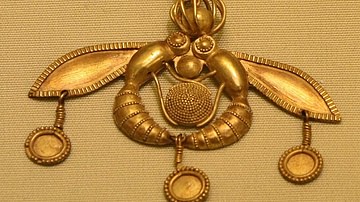
Image
Minoan Bee Pendant
A solid gold Minoan pendant depicting two bees clutching a honeycomb, Old Palace cemetery at Chrysolakkos near Malia, Crete, 1800-1700 BCE.
Herakleion Archaeological Museum, Crete.

Article
The Eleusinian Mysteries and the Bee
The fifth century BCE Greek historian Herodotus relates the importance of bees in ancient Greece, pointing out that the honey of neighboring countries was made using fruit, while the honey of the Greeks was produced by bees. The significance...
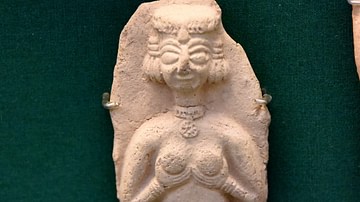
Definition
Astarte
Astarte is the Canaanite/Phoenician goddess of love, sex, war, and hunting who developed from the Mesopotamian deity Inanna/Ishtar. She is usually associated with the storm god Baal but seems to have been much more popular. She traveled to...

Article
Hipponax & Misogyny in Ancient Greece
It has always been recognized that women in the ancient world were considered only a little higher in value than the man's cattle or plow and, sometimes, not even accorded that kind of respect. Examples of misogynistic attitudes toward women...

Definition
Artemis
Artemis was the Greek goddess of hunting, wild nature, and chastity. Daughter of Zeus and sister of Apollo, Artemis was a patron of girls and young women, and a protectress during childbirth. Artemis was widely worshipped but her most famous...
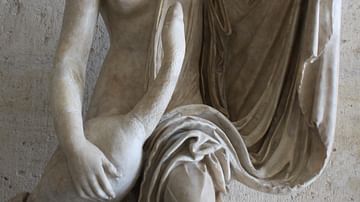
Definition
Leda
Leda is a figure from Greek mythology who was famously seduced by Zeus when he took the form of a swan. She was a queen of Sparta and mother of beautiful Helen who sparked the Trojan War, and the Dioscuri twins. Leda and the swan was a popular...
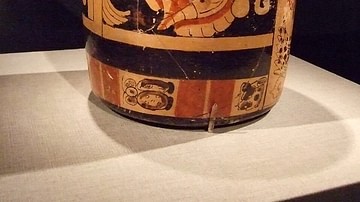
Definition
Chocolate in Mesoamerica
Chocolate was one of the most desired foods of Mesoamerica and was consumed by the Olmec, Maya, and Aztec civilizations, amongst others. Its consumption even spread via trade routes to other parts of the Americas including the Chaco Canyon...
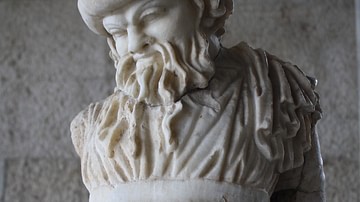
Definition
Silenus
Silenus (also spelt Silenos) is a rustic god of the forest, drunkenness and wine-making in Greek mythology. He is best known as the companion and foster father of the god Dionysos. Silenus is closely associated with the satyrs, sometimes...
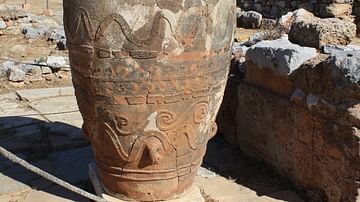
Definition
Malia
Located near a fertile plain in northern Crete and with its own harbour, Malia was one of the major settlements and palaces of the Minoan civilization. Inhabited since Neolithic times (6000 BCE) and with the first evidence of monumental architecture...

Article
The Civil Service Examinations of Imperial China
The civil service examinations of Imperial China allowed the state to find the best candidates to staff the vast bureaucracy that governed China from the Han Dynasty onwards (206 BCE - 220 CE). The exams were a means for a young male of any...